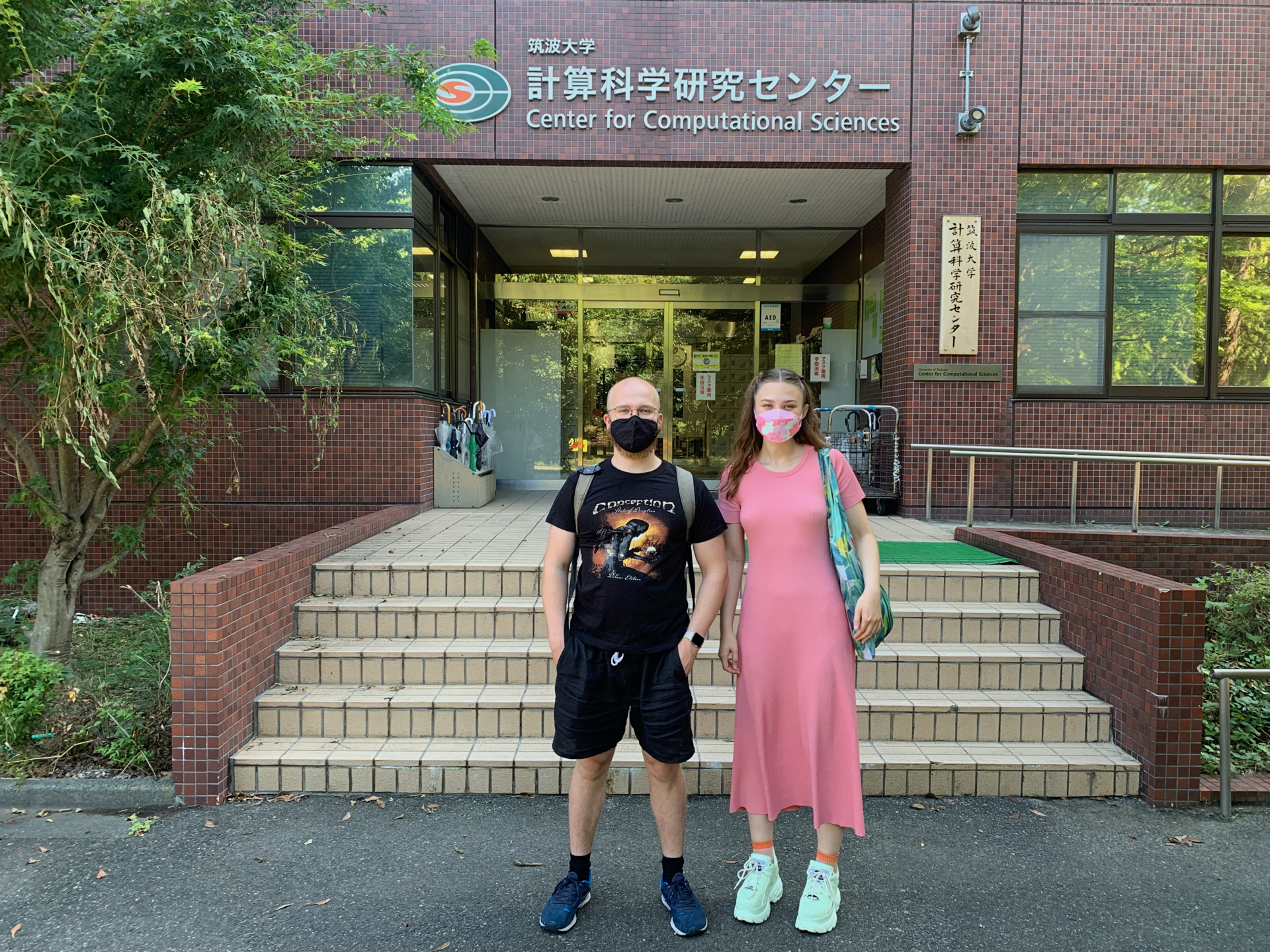Student Exchange Stories
During the autumn of 2019, four students were able to attend experiments at the New-SUBARU facility in Japan with the support of this project. Here are some of their stories:
"My trip to Japan in December 2019 was funded by INTPART. I was sent to help perform an experiment at the New SUBARU synchrotron radiation facility, located in Hyogo, Japan, in collaboration with German and Japanese researchers. The experiment was successful and the data is currently being analyzed by our collaborators in Germany. While I was there I got to know young researchers from other countries, which is good for both networking and further motivation. Together we explored new sides of nuclear physics, a laboratory very different to our own, as well as other places in Japan in between 12 hour night shifts. I am very grateful that I was able to participate in this experiment, as I am currently analyzing data for my PhD which was collected from an experiment in Japan completed before I began my studies. It was very good to be able to meet our collaborators in person and get to know them more than we would have been able to only through e-mail or digital meetings. " - Line Pedersen
Trip to Tsukuba:
"Jenny and I (Jon) went to Tsukuba from the 28th of August to the 3rd of September. The purpose of the trip was to visit Dr. Noritaka Shimizu who works at the Center for Computational Sciences at the University of Tsukuba. Shimizu-san is my master's co-supervisor and the author of the nuclear shell model solver code KSHELL, which I have used extensively for all calculations in my master's thesis. I'm in the final month of my master's and I've been having biweekly Zoom meetings with Shimizu-san for the better part of two years now, and I have not once seen him in real life until the recent Tsukuba trip! I was supposed to stay in Japan for a semester during my master's to work with Shimizu-san, but because of COVID-19 that didn't happen. The Tsukuba trip was in part to make up for that!
Jenny is a new master's student in nuclear physics at UiO and she is gonna do work similar to what I have done. Shimizu-san will be her co-supervisor and she will be using KSHELL. During our week in Tsukuba, Jenny and I have had sessions with Shimizu-san, Yutaka Utsuno (Dr. at univ. of Tokyo) and Yusuke Tsunoda (PhD at univ. of Tsukuba) where we have discussed future possibilities with shell model calculations for Jennys master's work, and we have discussed results from my master's and how to keep building on these results. Jenny has had an intensive week of shell model theory and KSHELL usage taught by me and the aforementioned people. We have discussed the work proposed by Ann-Cecilie (supervisor for both of us) for Jenny's master's work to figure out what is realistic to achieve. The trip to Tsukuba has been very valuable for this purpose, and we have gotten a lot of good suggestions from both Shimizu-san and Utsuno-san!
Utsuno-san came to Tsukuba specifically to attend a presentation I held there. One of the reasons I went to Tsukuba was because I was invited to present my masters work for the computational nuclear physics group at the university. There were about 15 attendees, including professors, doctors, PhDs and masters. After the presentation a subset of the attendees – Jenny and I included – discussed the presentation and other aspects of nuclear shell model calculations. We also attended a presentation by Tsunoda-san about his PhD work on Monte Carlo shell model calculations. Tsunoda-san presented work he has done on Sn isotopes which were very relevant to Jenny's future masters work." J. Dahl
